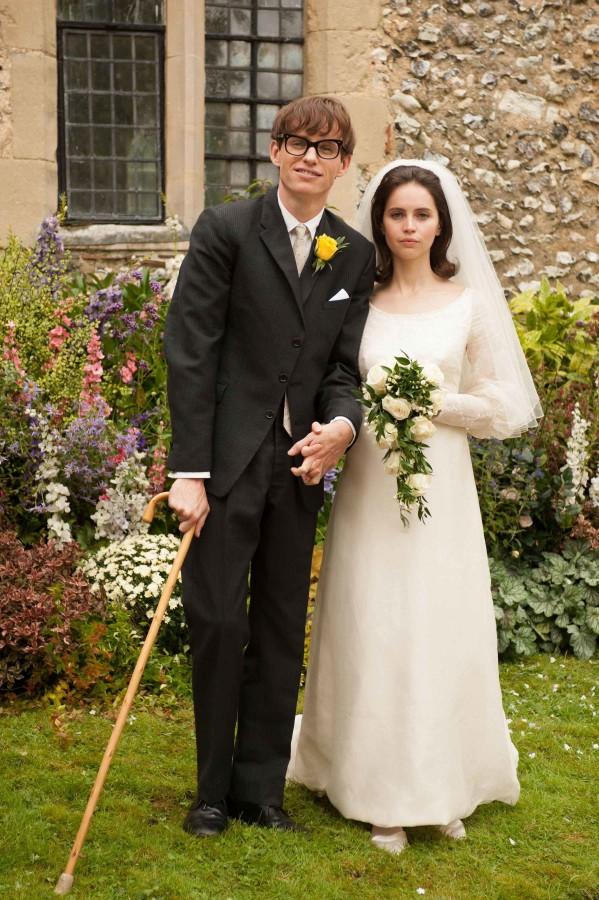‘The Theory of Everything’ is a cinematic singularity
February 8, 2015
Director James Marsh evoked the true tale of Stephen Hawking to the Oscar Awards in one of the most powerful films in recent years in “The Theory of Everything.”
Marsh was able to interconnect and weave the massive scale of the ever-expanding universe that Stephen studies with the most minute and small moments shared between Stephen and his wife Jane.
The script is based off the biography “Travelling to Infinity: My Life with Stephen,” penned by Jane Hawking, and stays true to the facts of their relationship without avoiding the hard-hitting and sometimes heart-wrenching moments. This is not your traditional love story.
The entire first act of the film felt optimistic and beautiful, with writing that never seemed less than genuine and cinematography that elevated the story to that of almost a fairy tale. Stephen is in the final years of earning his Ph.D, his genius already evident despite struggling with an idea for his thesis.
After a particularly riveting conference on black holes, Stephen found his academic muse and took the first steps toward his life’s work, tracing back the evolution of space and time to a single origin point in the universe, or as he calls it, a “Theory of Everything.”
While I saw hints of some irregularities in Stephen’s movements, all seemed to be well with him and Jane as they fell deeper and deeper in love. The optimism of the relationship is contagious and I couldn’t help but buy into the mushy lovey-dovey moments, despite knowing the inevitable doom that falls upon them in the form of Stephen’s diagnosis.
He was struck with Lou Gehrig’s disease, which was supposed to slowly cripple and break down bodily functions and eventually kill him. He was given two years to live. What followed was a riveting journey through adversity, with Eddie Redmayne delivering what I consider to be the best performance of the year, as the disease evolved over time. The audience watched Stephen’s body deteriorate while his mind continued to investigate the most complex physics equations and theories known to man.
His academic journey played a supporting role to the importance of the love story between himself and Jane, which became more and more complicated as the two year timespan Stephen was given became more and more inaccurate. The selflessness of Jane Hawking, played by Felicity Jones, was truly inspiring but took its toll.
While Jones brought Jane to life so beautifully, it was Redmayne’s portrayal of Stephen that shined. The role was Oscar-bait to begin with, but it was delivered so viscerally I actively chose to ignore the clichéd nomination of the role. Redmayne’s performance alone warrants a viewing of the film.
The actual professor Stephen Hawking praised the film, saying on Facebook, “I thought Eddie Redmayne portrayed me very well in “The Theory of Everything” [m]ovie. He spent time with ALS sufferers so he could be authentic. At times, I thought he was me.”
Stephen Hawking is one of the most brilliant minds to ever grace our planet, and “The Theory of Everything” did his character justice. See this film but be prepared to weep.










Thato amelia • Aug 23, 2022 at 1:05 pm
My first symptoms of ALS occurred in 2014, but was diagnosed in 2016. I had severe symptoms ranging from shortness of breath, balance problems, couldn’t walk without a walker or a power chair, i had difficulty swallowing and fatigue. I was given medications which helped but only for a short burst of time, then I decided to try alternative measures and began on ALS Formula treatment from Tree of Life Health clinic. It has made a tremendous difference for me (Visit w w w. treeoflifeherbalclinic .com ). I had improved walking balance, increased appetite, muscle strength, improved eyesight and others. ]